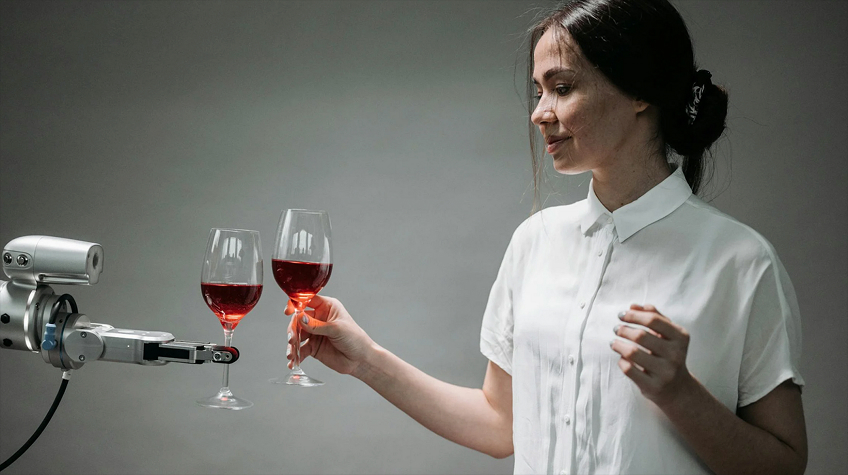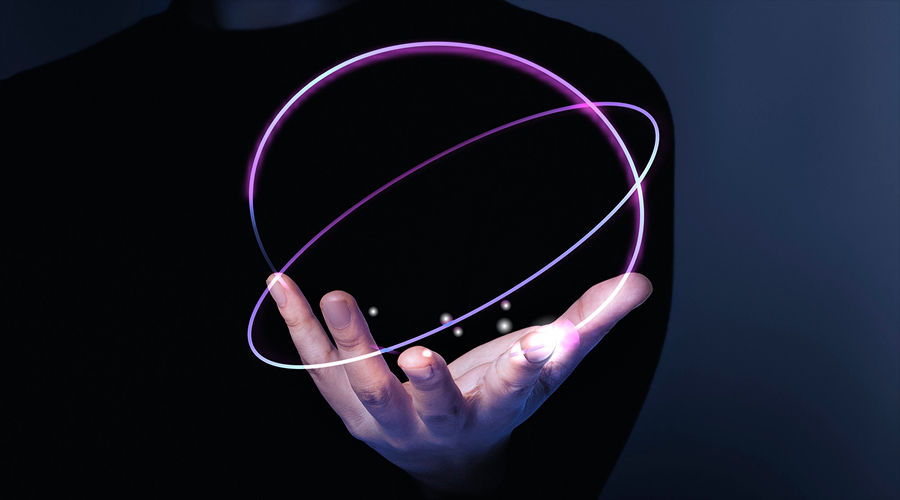
Welcome to 2025, folks, where the hum of innovation isn’t just background noise; it’s the main act, especially in the sizzling world of hospitality. If you’re running a hotel, a restaurant, a bar, or even a quirky pop-up, you know the game has changed. Guests aren’t just looking for a bed or a bite anymore; they’re craving experiences, personalized touches, and a seamless journey from the first click to the final farewell. And guess what’s helping deliver all that with a dash of digital magic? Artificial Intelligence, or AI, if you’re nasty. Forget sci-fi nightmares; we’re talking about marketing gold.
AI isn’t some distant future tech; it’s here, now, weaving its way into every facet of how hospitality businesses connect with their customers. We’re not just talking about chatbots that answer FAQs anymore (though they’ve certainly upped their game). We’re delving into a realm where AI can predict guest preferences before they even know them, craft hyper-targeted campaigns that feel like they were written just for you, and optimize pricing strategies faster than you can say “room service.”
This isn’t just about efficiency; it’s about creating genuine, lasting connections in a crowded market. The marketing landscape for hospitality in 2025 is less about shouting into the void and more about having a really smart, personalized conversation. Businesses that grasp this early on aren’t just surviving; they’re absolutely thriving, setting new benchmarks for what customer engagement truly means. It’s an exciting time to be in the game, isn’t it?
So, how exactly can hospitality companies unleash the power of AI to supercharge their marketing efforts in 2025? Let’s dive in, shall we?
Hyper-Personalization: Because One Size Fits None
Remember the days of generic email blasts? Shudders. They’re about as effective as a chocolate teapot now. AI, however, is a personalization powerhouse. It chews through mountains of data – booking history, website interactions, social media engagement, even local event calendars – to build incredibly detailed profiles of your customers. This isn’t just about knowing their name; it’s about understanding their preferred room type, their dietary restrictions, whether they like a quiet corner or the buzz of a busy bar, and even the kind of local attractions they’d be interested in.
Imagine this: a returning guest checks into your hotel. Before they even step through the door, AI has flagged that they usually order a specific type of coffee for breakfast and prefer a room with a city view. Boom! A personalized welcome message pops up on their phone, offering that coffee and suggesting a local rooftop bar with a fantastic vista. That’s not just good service; that’s borderline psychic. This level of anticipatory marketing builds incredible loyalty. Customers feel seen, valued, and understood.
AI has been a game-changer for us in understanding our clients’ bespoke needs,” says Sarah Jenkins, Head of Marketing at Lombard Hospitality, a leading catering company based in London. “We can now predict dietary preferences and event themes with remarkable accuracy, allowing us to tailor our proposals and menus in a way that truly resonates. It’s transformed how we approach client relationships, making every interaction feel genuinely personal.” This insight from a company known for its meticulous attention to detail truly underscores the transformative potential of AI in service delivery.
Predictive Analytics: Peering into the Crystal Ball (Almost)

What if you could predict future trends and customer behavior before they even happen? AI isn’t quite a crystal ball, but predictive analytics comes pretty darn close. By analyzing historical data, market trends, and external factors like local events or even weather patterns, AI algorithms can forecast demand for rooms, predict peak dining times, and even anticipate which marketing campaigns are most likely to convert.
This isn’t just about filling rooms; it’s about optimizing pricing, staffing levels, and inventory management. If AI predicts a surge in family bookings during a specific school holiday, you can proactively adjust your marketing messaging to highlight family-friendly packages, reallocate staff to kids’ club activities, and ensure your restaurant has plenty of high chairs. This proactive approach minimizes waste, maximizes revenue, and keeps your operations running smoother than a perfectly blended cocktail.
Chatbots and Virtual Assistants: Your 24/7 Concierge
Gone are the days of frustrating phone menus and endless waiting on hold. AI-powered chatbots and virtual assistants are the new frontline for customer service, available 24/7 to answer questions, process bookings, and even provide local recommendations. These aren’t your grandpa’s clunky chatbots; modern AI conversational agents can understand natural language, learn from interactions, and even adapt their tone.
Think about it: a potential guest is Browse your website at 3 AM from halfway across the world. They have a quick question about pet policies. Instead of waiting for business hours, a friendly chatbot instantly provides the answer, potentially converting a casual browser into a confirmed booking. This level of immediate gratification is exactly what today’s consumer expects. It frees up your human staff to focus on more complex inquiries and provide that invaluable in-person touch.
Content Creation & Optimization: From Bland to Brilliant
Staring at a blank page, wondering how to craft compelling marketing copy? AI can be your secret weapon. From generating catchy social media captions to drafting personalized email subject lines and even assisting with blog post outlines, AI content tools can significantly boost your output and creativity. It’s not about replacing human writers, but empowering them to be more efficient and innovative.
Beyond creation, AI also excels at content optimization. It can analyze the performance of your existing content, identifying what resonates with your audience and what falls flat. It can suggest keywords to improve your search engine rankings, recommend optimal posting times, and even personalize content delivery based on individual user preferences. This means your marketing message isn’t just out there; it’s getting seen by the right people at the right time.
We’ve seen a real uplift in engagement since we started using AI to refine our social media strategy,” remarks David Smith, Marketing Manager at London Bridge Rooftop, a popular spot with killer views. “It helps us understand what content truly resonates with our audience, whether it’s a particular type of photo or a specific tone of voice in our posts. It’s like having an extra team member dedicated to figuring out the perfect vibe for our followers, ensuring we’re always top of mind when people are planning a night out.” This highlights how AI helps businesses maintain their unique brand voice while maximizing reach.
Dynamic Pricing: The Art of the Perfect Price Point
Setting the right price for a hotel room or a menu item is a delicate balancing act. Too high, and you scare off potential customers; too low, and you leave money on the table. AI-powered dynamic pricing models are the ultimate solution. These sophisticated algorithms continuously analyze a vast array of factors – competitor pricing, local demand, historical booking patterns, even weather forecasts and public holidays – to adjust prices in real-time.
This means your prices are always optimized for maximum occupancy and revenue. During peak seasons or for last-minute bookings, prices can subtly increase, while during off-peak times, they might dip to stimulate demand. It’s a finely tuned system that responds instantly to market shifts, ensuring you’re always getting the best possible return on your inventory. It’s a fundamental shift from static pricing, allowing for unprecedented agility in a competitive market.
Also Read: How to Build the Best Online Car Washing Booking Website
Targeted Advertising: Hitting the Bullseye Every Time
Tired of throwing marketing spaghetti at the wall and hoping something sticks? AI revolutionizes targeted advertising. Instead of broad campaigns, AI allows you to micro-target specific audience segments with pinpoint accuracy. Based on the rich customer profiles AI builds, you can serve ads to people who have recently searched for similar services, visited competitor websites, or even expressed interest in related travel destinations.
This precision targeting dramatically increases your return on ad spend. You’re not just reaching a large audience; you’re reaching the right audience – people who are genuinely interested in what you offer. Imagine running an ad for a romantic weekend getaway package that only appears to couples who have recently booked a fancy dinner or browsed honeymoon destinations. That’s the power of AI-driven targeting: efficiency meets efficacy.
Loyalty Programs Reimagined: More Than Just Points
Traditional loyalty programs can feel a bit transactional. AI can transform them into deeply personalized experiences that foster genuine brand advocates. Beyond just tracking points, AI can analyze a loyal customer’s past behavior and preferences to offer truly relevant rewards and exclusive experiences.
Perhaps a returning guest who always orders a specific wine is surprised with a complimentary bottle in their room. Or a family who regularly dines at your restaurant receives a special invitation to a kids’ cooking class. These aren’t generic perks; they’re thoughtful gestures that show you truly understand and appreciate their business. This elevates loyalty beyond mere discounts, building emotional connections that keep customers coming back again and again.
For us, AI is about enhancing the customer experience, not replacing the human touch,” explains Alex Hayes, General Manager at Thirst in Soho, a vibrant London bar known for its unique cocktails. “We’re exploring how AI can help us anticipate what our regulars might want before they even order, or even suggest new drinks based on their past choices. It’s about making them feel even more at home, like we truly get their vibe. That’s where the magic happens – a seamless blend of tech and genuine hospitality.” His perspective perfectly encapsulates the harmonious relationship between AI and the human element in creating exceptional customer experiences.
The Future is Now: Embracing AI in Hospitality Marketing
So, there you have it. The age of AI in hospitality marketing isn’t just knocking; it’s practically kicked the door down and is setting up shop. From understanding your guests on a deeply personal level to predicting their every whim, crafting compelling content, and ensuring your prices are always spot-on, AI offers an unparalleled toolkit for businesses looking to dominate the market in 2025 and beyond.
The hospitality industry has always been about making people feel special, creating memorable moments, and offering impeccable service. What AI does is amplify that, allowing businesses to scale personalization and efficiency in ways that were once unimaginable. It’s not about replacing the warmth of human interaction; rather, it’s about empowering that interaction, making it more informed, more targeted, and ultimately, more impactful. Businesses that embrace this technological revolution won’t just keep pace; they’ll set the pace, redefining what it means to truly connect with customers in a digital-first world. Are you ready to dive in? Because the future of hospitality marketing is looking brighter, smarter, and more personalized than ever before.






